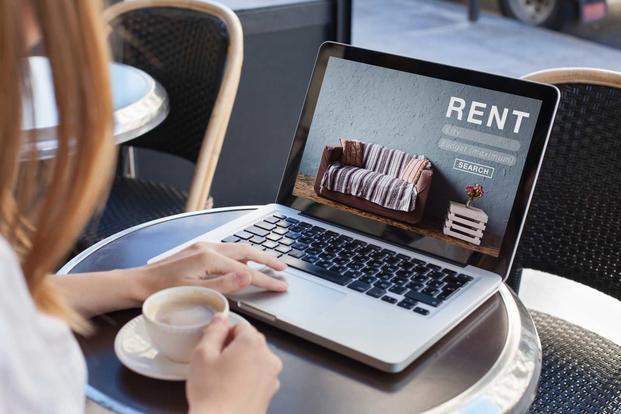An old trend from the late 1800s and early 1900s is again resurfacing. Census experts say that the reason for the resurgence in individual room rentals is a wobbling economy and high unemployment rates. In fact, according to statistics, between 2008-2010, 7.3 million people were unrelated adults living in someone else’s home.
If you’ve been thinking about smaller-scale rentals like this—such as renting out one of your rooms—there are a few things you can do to make sure it’s a positive experience for all involved. There are a few legal and tax-related matters to know, but also lifestyle issues that can arise.
Your first stop is going to be the US Department of Housing and Urban Development’s website to take a look at your state’s laws on the subject. Though lodgers or boarders are treated a bit differently, often, they have exactly the same rights. Protecting yourself means making sure you are not in violation of those rights and making sure you know your local zoning laws. You can find that out by checking in with a county administrator or your local city hall.
Essential Considerations for Homeowners Renting Out a Room
Renting out a room in your house can be a practical and rewarding option for homeowners. Not only can it provide an additional source of income, but it also allows for social interactions and can help alleviate financial burdens. However, before embarking on this journey, there are several crucial considerations that homeowners should keep in mind to ensure a successful and harmonious renting experience. Here are the key aspects homeowners should consider before renting out a room in their house.
Legal and Regulatory Requirements
Before renting out a room, homeowners must familiarize themselves with local laws and regulations governing landlord-tenant relationships. Legal obligations may include obtaining permits, adhering to zoning laws, ensuring compliance with safety codes, and having appropriate rental agreements in place. Ignoring these legal requirements may lead to potential disputes or even legal consequences, so it is essential to start the process on a solid legal foundation.
Screening Potential Tenants
Selecting the right tenant is crucial to maintaining a positive living environment. Homeowners should perform thorough background checks, including credit history, employment verification, and references from previous landlords. A reliable tenant is more likely to pay rent on time, take care of the property, and foster a peaceful coexistence.
Establishing Clear House Rules
To ensure a harmonious living arrangement, homeowners should set clear and concise house rules from the outset. These rules may cover noise restrictions, guests’ policies, smoking regulations, and shared responsibilities for household chores. Open communication about the expectations and boundaries will help prevent misunderstandings and conflicts in the future.
Setting an Appropriate Rent
Determining the right rental price is a crucial factor in attracting potential tenants and ensuring a fair return on investment for the homeowner. Research the local rental market and consider factors like location, amenities, and nearby services when setting the rent. Charging an appropriate amount will make the rental room more appealing to potential tenants and reduce the risk of vacancies.
Preparing the Room for Rent
The rented room should be in good condition and equipped with basic furnishings before listing it for rent. Clean and tidy living spaces will attract more tenants and make the property more marketable. Additionally, ensure that all safety features, such as smoke detectors and fire extinguishers, are functional and up-to-date.
Privacy and Boundaries
Homeowners should respect the privacy of their tenants and establish boundaries within the shared living space. Ensuring that personal spaces, such as bedrooms, are off-limits to the homeowner, will foster a sense of independence and respect.
Insurance Coverage
Renting out a room may impact the homeowner’s insurance coverage. It is essential to inform the insurance provider about the rental arrangement and explore additional coverage options to protect against potential liabilities that may arise from renting out a portion of the property.
Maintenance and Repairs
Homeowners should be prepared to address maintenance issues promptly. Providing a well-maintained living space will not only ensure tenant satisfaction but also protect the long-term value of the property. It is advisable to set aside a portion of the rental income for maintenance and repairs.

Issues Associated with Renting Out a Room
Renting out a room in your home can be a beneficial arrangement, but it also comes with potential challenges and problems that homeowners should be aware of. Some of the common issues that may arise when renting out a room include:
- Tenant Screening Issues: Selecting the wrong tenant can lead to various problems, such as late or non-payment of rent, property damage, or disruptive behavior. If proper screening processes are not in place, homeowners may end up with problematic tenants.
- Disputes Over House Rules: Differences in lifestyle or interpretation of house rules can lead to conflicts between the homeowner and the tenant. Issues like noise levels, cleanliness, and shared responsibilities may cause tension if not addressed clearly from the beginning.
- Rent Collection Problems: Some tenants may struggle to pay rent on time, leading to financial strain for the homeowner. Late payments or non-payment can disrupt the homeowner’s financial planning and create an uncomfortable situation.
- Property Damage: Accidents or negligence by tenants can result in damage to the property, such as broken furniture or stains on the carpet. Repairing or replacing these items can be costly and time-consuming.
- Lack of Privacy: Sharing living spaces with a tenant can reduce the homeowner’s privacy and may be challenging, especially for those who value personal space.
- Safety and Security Concerns: Having a stranger living in close proximity may raise concerns about security and safety, especially if the homeowner has family members or valuable belongings in the house.
- Maintenance and Repairs: Regular maintenance and addressing repair issues become the homeowner’s responsibility. Neglecting maintenance can lead to further problems and reduce the property’s overall value.
- Legal Disputes: Failure to comply with local laws or unclear rental agreements may lead to legal disputes between the homeowner and tenant, resulting in time-consuming and costly legal proceedings.
- Insurance Implications: Renting out a room may impact the homeowner’s insurance coverage. In some cases, standard homeowner’s insurance may not cover rental-related damages or liabilities.
- Mortgage and HOA Restrictions: Some mortgage agreements and homeowners’ association (HOA) rules may prohibit or restrict homeowners from renting out rooms in their homes, leading to potential violations and penalties.
To mitigate these problems, homeowners should conduct thorough tenant screenings, establish clear house rules, maintain open communication, and ensure the property is well-maintained. Additionally, having a comprehensive rental agreement in place can help clarify expectations and address potential issues in advance. Regularly reviewing and updating rental policies can also contribute to a successful and smooth renting experience.

Tax Rules When Renting Out a Room
Because rental income is considered taxable income, you can offset it by deducting some costs. You’ll need to first measure how much square footage is being used just by that lodger. Basically, that’s just the room size they are in and any other places that you designate for their use exclusively. You’ll also want to measure those shared areas, as well.
Second, look at the measurements of the shared areas and divide them by the number of individuals sharing them. For instance, if the living room is considered a shared area and you have five people in the house but one is a boarder, divide that room’s square footage by 5.
You’ll then add that to the square footage used exclusively by your tenant. So, say your boarder is using 25% of the home, you can then deduct 25% of mortgage interest, insurance, utilities, maintenance and repairs, janitorial work, cable and internet, property tax, and security.
You can also deduct the cost of repairs to anything your tenant broke, as well as things for their benefit, like painting the room or adding a bathroom to it. Additionally, you can take depreciation on 25% of your home’s value, but only the home and not the lot or acreage around it.
House Rules When Renting Out a Room
This is where some organization ahead of time is going to be critical. You’ll want to cover anything that may cause conflict. The biggest areas that become problematic are:
-
Thermostat control
-
Parts of the home not open to the boarder
-
Guests
-
In-room sanitation
-
Meals and food
-
Parking
-
Quiet time
It’s really important to make sure that your rules are in line with laws concerning discrimination, but also that they are somewhere in writing. It’s best to have a set typed and signed before you move a boarder in, along with your lease.
Stay Organized
There’s a bit of temptation or an illusion that renting a room doesn’t require as much organization as would renting the whole house or apartment. This is not true. Though you might not have to mail out, there’s still a bit of billing and organization involved. Careful record keeping helps not only in the event of something bad happening, but also at tax time. So, even if you are just renting out a room, we have plans that will work for you, keep you streamlined and give you one less thing to think about.

